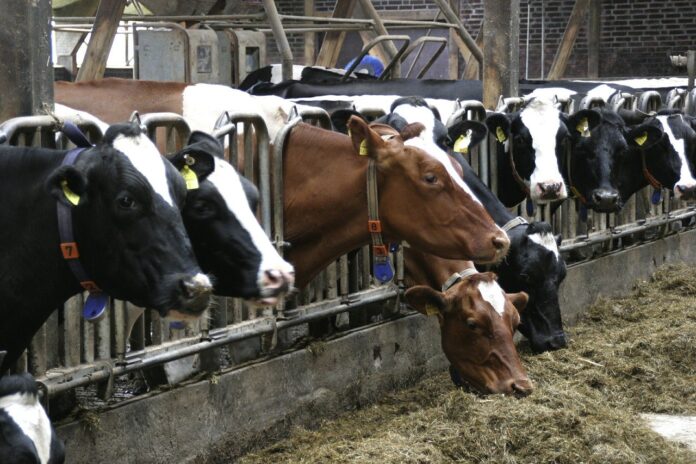A major new study has found that the production of meat leads to twice the amount of greenhouse gas emissions compared to the production of plant-based foods.
Published in journal Nature Food, the study aims to analyze the impact of current global food system on the environment. To arrive at the findings, researchers conducted a comprehensive study by examining data from over 200 countries, and scrutinizing emissions profile of 171 crops and 16 animal products.
According to the study, the current food production system is responsible for one-third of the total greenhouse gases emissions due to human activity.
ALSO READ: Universities in Germany Switch to Plant-Based Menus to Reduce Environmental Impact
Conforming to the findings of several similar studies undertaken over the past few years, researchers reveal that the rearing of animals for food and growing crops to feed them alone comprises 57% global emissions from food production. On the other hand, growing plants for food and processing them make up only 29% of emissions, around half of that from meat.
The worst culprit is beef, accounting for one-fourth of all food related emissions.
The study also found that South America is responsible for the largest amount of animal-based food emissions, followed by South Asia, Southeast Asia and China.
Animal foods are wasteful
Considering the fact that raising animals for food involves clearing of forest lands for pastures, the study finds that the majority of all the world’s cropland is used to feed livestock rather than people.
Another point highlighted in the research is the production of large quantities of methane, a potent greenhouse gas, by cattle during their digestive process, which further contributes to ever-growing planet-heating emissions.
In a report published in The Guardian, Xiaoming Xu, study’s lead author, said, “All of these things combined means that the emissions are very high. To produce more meat, you need to feed the animals more, which then generates more emissions. You need more biomass to feed animals in order to get the same amount of calories. It isn’t very efficient.”
ALSO READ: New Film by Kate Winslet Highlights Calamitous Impact of Animal Agriculture
To combat this problem, researchers suggest countries should design policies keeping in mind the huge amount of difference between the environmental impact of plant-based and animal-based foods.
Atul Jain, climate scientist and co-author of the study, said: “This study shows the entire cycle of the food production system, and policymakers may want to use the results to think about how to control greenhouse gas emissions.”
“A lot of this comes down to personal choice. You can’t just impose your views on others. But if people are concerned about climate change, they should seriously consider changing their dietary habits.”


